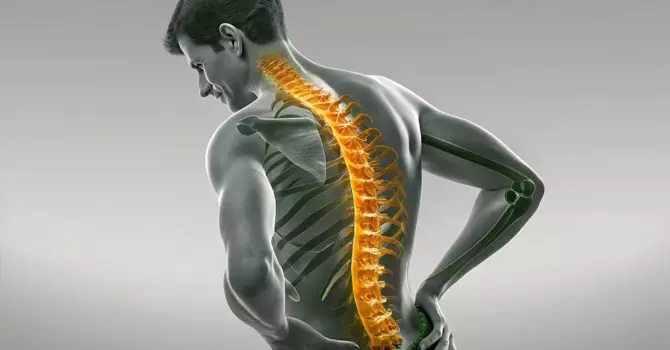
Vitamin D: More Than Just a Sunshine Vitamin
Vitamin D is commonly linked to bone health and sunlight, but it serves many more purposes beyond aiding in calcium absorption. It is essential for immune function, mood stabilization, managing inflammation, and promoting muscle recovery.
Despite its importance, vitamin D deficiency is one of the most common nutrient deficiencies worldwide, even in sunny climates.
In this post, we'll explore the various roles vitamin D plays in your body, how to determine if you're getting enough, and how to optimize your levels safely.
What is Vitamin D?
Vitamin D is a fat-soluble vitamin that functions like a hormone in the body. Your skin produces it when exposed to sunlight, and you can also obtain Vitamin D from certain foods and supplements.
After being absorbed by the body, vitamin D is converted into its active form, calcitriol, which interacts with receptors in almost every tissue throughout the body.
This suggests that vitamin D offers benefits that extend far beyond simply promoting strong bones.
The Many Roles of Vitamin D in the Body
1. Bone Health and Calcium Absorption
Vitamin D enhances the absorption of calcium and phosphorous in the intestines, providing the building blocks for strong bones and teeth.
Low levels can lead to:
- Osteopenia or osteoporosis
- Increased risk of fractures
- Soft bones in children (rickets) or adults (osteomalacia)
2. Immune System Regulation
Vitamin D supports both innate and adaptive immune responses, helping the body fight off infections while keeping inflammation in check.
Deficiency has been associated with:
- Increased susceptibility to colds, flu, and respiratory infections
- Higher risk of autoimmune diseases (e.g., MS, rheumatoid arthritis)
3. Mood and Brain Function
Vitamin D receptors are found in the areas of the brain responsible for mood regulation and neurotransmitter production.
Low levels are linked to:
- Seasonal Affective Disorder (SAD)
- Depression and anxiety
- Cognitive decline in older adults
4. Muscle Strength and Recovery
Vitamin D plays a role in muscle protein synthesis, neuromuscular function, and the control of inflammation.
Adequate levels may help with:
- Faster recovery from exercise
- Reduced muscle soreness
- Decreased risk of falls and muscle weakness in older adults
5. Inflammation and Chronic Disease Prevention
Vitamin D modulates the inflammatory response by downregulating pro-inflammatory cytokines and supporting immune balance.
Chronic low levels have been linked to:
- Cardiovascular disease
- Type 2 diabetes
- Metabolic syndrome
- Certain cancers
Signs and Symptoms of Vitamin D Deficiency
Many people with low vitamin D levels may not initially notice any apparent symptoms. Common signs include:
- Fatigue or low-energy
- Bone or joint pain
- Muscle weakness or cramps
- Frequent infections or illness
- Low mood or irritability
- Hair thinning or loss
- Poor recovery from exercise
- Slow wound healing
At-risk groups include:
- People with darker skin (melanin reduces vitamin D synthesis)
- Older adults
- Those who avoid sun exposure or wear sunscreen constantly
- People living in northern latitudes or with long winters
- Individuals with gut absorption issues (e.g., celiac, Chron's)
- Those with obesity (vitamin D can become sequestered in fat tissue)
How to Test Vitamin D Levels
The best way to assess your vitamin D status is through a blood test: 25-hydroxyvitamin D (25(OH)D).
- Optimal range: 40-60 ng/mL for most people
- Insufficiency: 20-30 ng/mL
- Deficiency: <20 ng/mL
Regular testing, especially during the winter months, is a proactive step to ensure your vitamin D levels remain within the optimal range. This simple practice can significantly contribute to your overall health and well-being.
How to Increase Your Vitamin D Levels
1. Sunlight Exposure
The most natural way to increase vitamin D is through exposure to sunlight. The skin produces vitamin D when UVB rays hit exposed skin.
Tips for safe sun exposure:
- Expose face, arms, or legs for about 10-30 minutes several times per week
- Midday sun (10 a.m. to 2 p.m.) is most effective
- Skin tone, age, latitude, and season all affect synthesis
- Avoid burning, and be mindful of skin cancer risk
Note: Sunscreen and windows block UVB rays, which limits vitamin D production.
2. Vitamin D-Rich Foods
Very few foods naturally contain significant amounts of vitamin D, but helpful sources include:
- Fatty fish: Salmon, mackerel, sardines
- Cod liver oil
- Egg yolks
- Beef liver
- Fortified foods: Milk, orange juice, cereals, plant-based milk
Even with a healthy diet, it can be challenging to reach optimal levels without supplementation, especially during the winter months.
3. Supplementation
If you're deficient or can't get enough sun, supplementing with vitamin D3 (cholecalciferol) is recommended.
- Typical dosage: 1,000-5,000 IU per day (depending on individual needs)
- Take with food (preferably fat) to aid in absorption
- D3 taken with K2 may be more beneficial for bone and heart health
- Regular testing ensures you stay in a safe and effective range
Always consult a healthcare provider to determine the proper dosage for your specific needs.
Vitamin D and Chiropractic Care
As a chiropractic practice dedicated to whole-body wellness, we recognize that optimal recovery and overall health rely on more than just spinal alignment.
Vitamin D supports:
- Strong bones and connective tissues
- Reduced inflammation
- Improve immune resilience and healing
- Balanced mood and energy
If you are experiencing fatigue, muscle soreness, bone or joint pain, frequent colds or infections, or slow healing, vitamin D may be the crucial factor you're missing.
Final Thoughts
Vitamin D is much more than just the "sunshine vitamin." It serves as a potent regulator of your immune system, nervous system, musculoskeletal function, and metabolic health.
At Arthrology Chiropractic, we assess your health from all angles, with vitamin D status being a crucial factor we consider in helping you achieve your wellness goals.
If you haven't had your levels checked recently, it's a good idea to do so. With a proper nutrition, lifestyle, and supplementation plan, you can support your body in healing, performing optimally, and thriving.

Edward Boudreau
Contact Me



.png)
